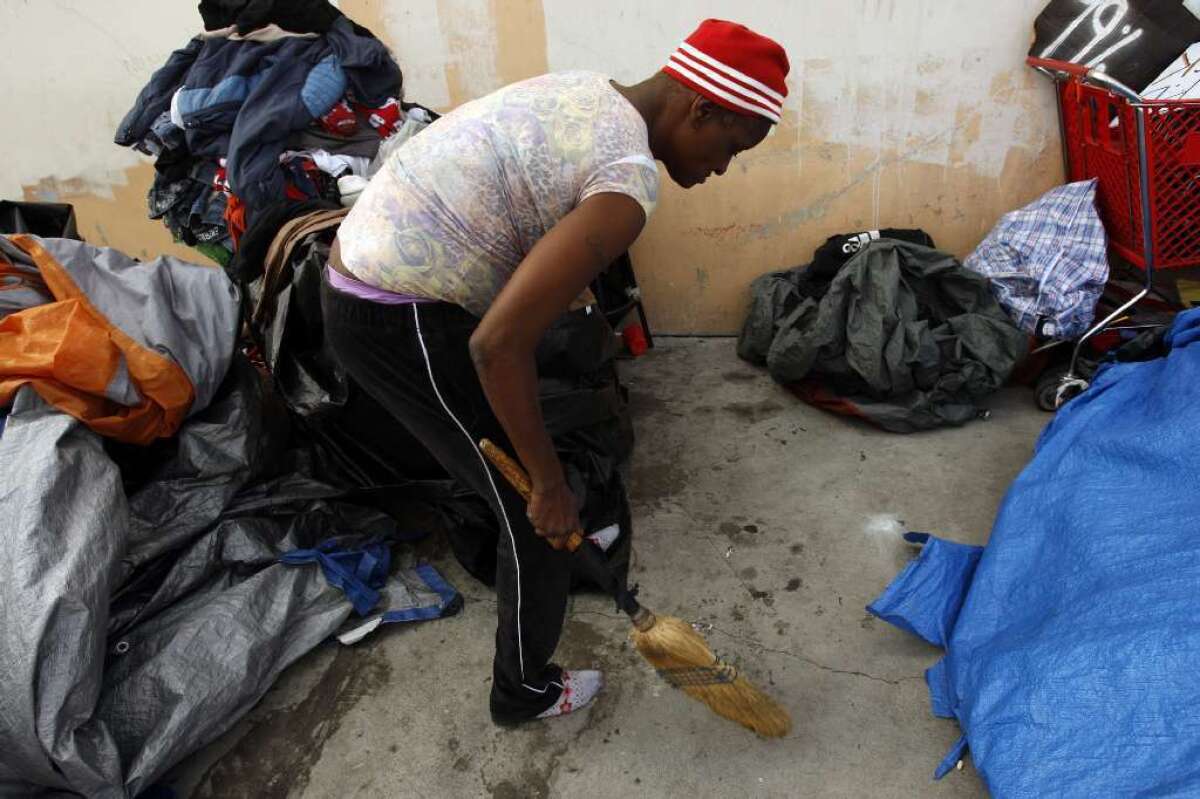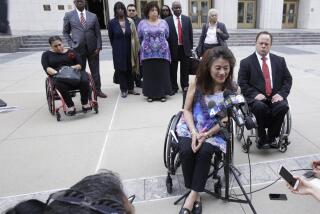Court says L.A. must pay $700,000 to lawyers for skid row homeless

- Share via
The city of Los Angeles must pay $700,000 to lawyers for skid row homeless people who successfully challenged a ban on sleeping in the streets, a federal appeals court has ruled.
The lawyers offered a year ago to settle for a fraction of that amount, said civil rights attorney Carol Sobel, who was on the legal team for the homeless people. Mayor Eric Garcetti, then a councilman, and other council members present for the December 2012 vote rejected the offer.
The city had argued it should not have to pay the attorneys’ fees because it settled the underlying case in 2007. Under the settlement, the city agreed to stop arresting people camped out overnight on sidewalks until it could provide 1,250 new units of supportive housing.
Upholding a lower court ruling, the U.S. 9th Circuit Court of Appeals said the homeless people prevailed and their attorneys’ fees should be paid.
Sobel said her team may seek more fees but would wait to hear if the city decides to further appeal the long-running case.
City Atty. Mike Feuer just received the ruling and is reviewing “all our options,” said his spokesman, Rob Wilcox.
The city enacted its sidewalk sleeping ban in the early 1900s as a way to fight vagrancy. In 2002, then LAPD Chief William J. Bratton called for taking down the tent cities that rise each night on skid row, but he held off enforcing the edict after the lawsuit was filed the following year.
In 2006, the court found it was cruel and unusual punishment for the city to roust homeless people without providing them beds. The city reported opening an additional 771 permanent supporting housing beds last year, but Sobel said it has not reached the goal of 1,250 units. About 58,000 people in Los Angeles County are homeless on an average night, including 22,000 people who live in the city streets.
Twitter: @geholland
More to Read
Sign up for Essential California
The most important California stories and recommendations in your inbox every morning.
You may occasionally receive promotional content from the Los Angeles Times.










